“Climate change resulted in a decrease in harvest which decreased our income…
…As a result, my children have dropped out of school.”
For farmers like Lebiso Labena, a changing climate has meant a fight for survival. But it isn’t a hopeless fight. You can make a tangible difference.
Lebiso has been a farmer for the past 15 years and lives in Hobicha, Ethiopia with his wife and six children.
The landscape is picturesque, characterized by hilly terrain, large plains, valleys and gorges. But beneath the serene landscape, there is suffering. Families don’t have enough to eat because of a changing climate.
“The climate has changed, and it has harmed us a lot and made farming difficult.” Lebiso tells us. “As the weather changes, it causes rainfall fluctuations and untimely rainfalls, which often destroy the crops.”
Like many families in the region, Lebiso relies on rain-fed agriculture for his family’s livelihood and to feed his children. For many years, this was enough. Rains were predictable and steady. But now, thanks to a changing climate, things have changed. This year it didn’t rain for four months. The usual way of farming doesn’t work anymore.
“As a result, we have a low harvest and thus a lack of food and income. We have suffered. My children have suffered as well.”
Imagine how hard it must be to watch your livelihood be chipped away. Every year, you try harder to make ends meet, doing the only thing you’ve known for many years, only to come up empty-handed. As a father, Lebiso feels the pressure. It is his responsibility to provide for his family.

Lebiso has been a farmer for the past 15 years and lives in Hobicha, Ethiopia with his wife and 6 children.
The landscape is picturesque – characterized by hilly terrain, large plains, valleys and gorges. But beneath the serine landscape, there is suffering. Families don’t have enough to eat because of a changing climate.
“The climate has changed, and it has harmed us a lot and made farming difficult.” Lebiso tells us. “As the weather changes, it causes rainfall fluctuations and untimely rainfalls, which often destroys the crops.”
Like many families in the region, Lebiso relies on rain-fed agriculture for his livelihood and to feed his children. For many years, this was enough. Rains were predictable and steady. But now, thanks to a changing climate, things have changed. This year it didn’t rain for 4 months. The usual way of farming doesn’t work anymore.
“As a result we have a low harvest, and thus a lack of food, and income. We have suffered. My children have suffered as well.”
Imagine how hard it must be to watch your livelihood be chipped away. Every year, you try harder to make ends meet, doing the only thing you’ve known for many years. Only to come up empty handed. As a father, Lebiso feels the pressure. It is his responsibility to provide for his family.
How climate change affects farming families
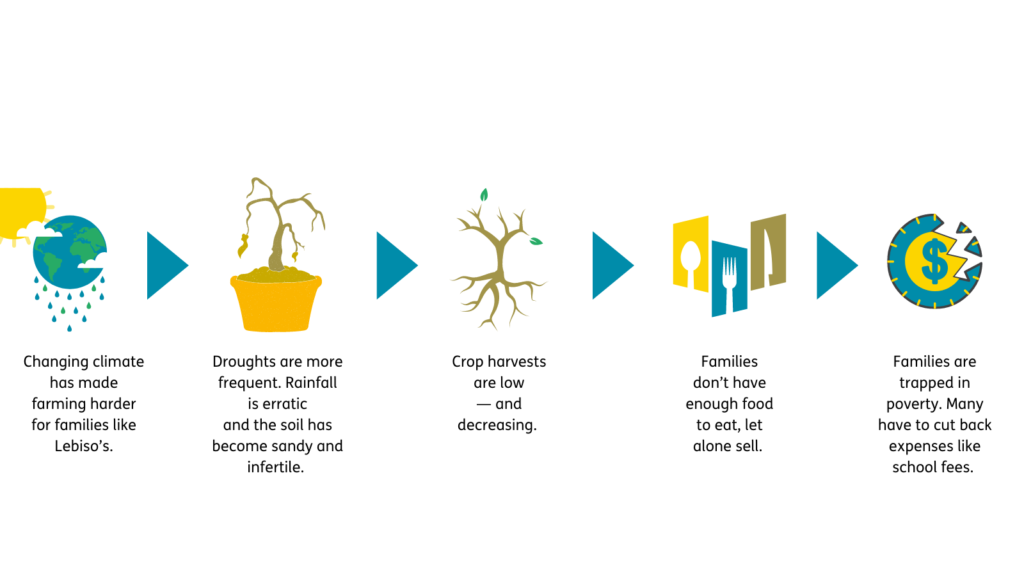
How Climate Change Affects Farming Families
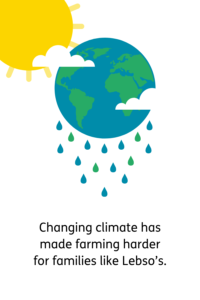
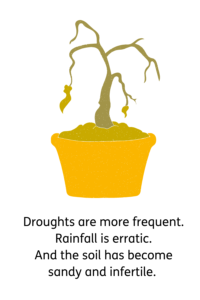
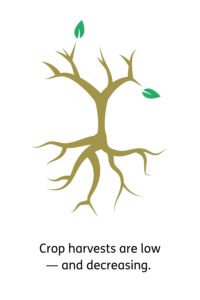

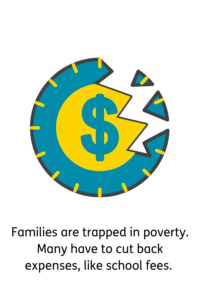
It doesn't have to be this way.
As Christians, we believe that God has created a world where there is enough for everyone. A world we’re meant to nurture and take care of.
In response to the climate crisis, we are helping farmers learn new farming methods that are helping them adapt to the changing conditions. You can be a part of this critical work—and make an immediate and tangible difference in lives like Lebiso’s.
- We start by protecting the land and making it more productive. Instead of using harmful and expensive fertilizers, we teach farmers how to enrich the soil through simple practices such as crop rotation, intercropping, and mulching.
- We then focus on water management, helping farmers prevent soil erosion and store water for dry times. We encourage the planting of trees, which not only further prevent erosion, but also increase humidity, and capture carbon.
- The local church is central to this work, acting as an advocate and a catalyst for change.
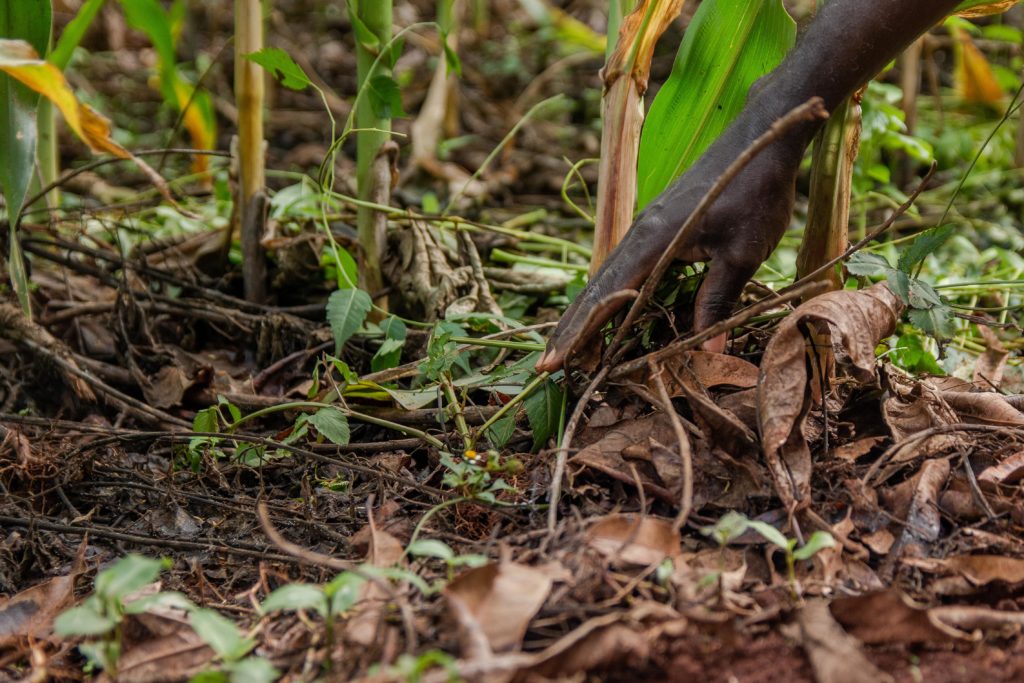

The result? A system of farming that not only helps the environment, but also dramatically grows more food.
Through these simple farming methods, Lebiso was able to increase his harvest yields by 71%! Not only that, he is now nurturing and replenishing the landscape so that both his family and nature can thrive going forward.
“Before, even though we put in all the effort, it did not yield results or big harvests. After, the church taught us about soil development, I started harvesting much more! We have even been able to sell some in the market.”
“I have many plans for the future. Things happen according to God’s will and I am implementing the new farming practice across my farmland. There are plants that can I can plant to cover the ground. Not only do these prevent water loss, I can also sell them. That way, I can increase my income, and cover the school fees for my children.”



The climate crisis hits families like Lebiso's the hardest.
The poorest 3.5 billion people are responsible for just 10% of emissions, but these same people are already facing the worst impacts of climate change. In 2016, world hunger increased for the first time in more than a decade.
But together, we can help many of them adapt and have hope for the future.
Over the next three years, our vision is to help 5,000 farming families in Hobicha adapt to a changing climate and plant hundreds of thousands of trees. It might not seem like much, but it can make a world of difference for family’s like Lebiso’s.
But we can’t do it without your support. Today, please consider the tangible impact you can make in the life of a farming family across the world.






